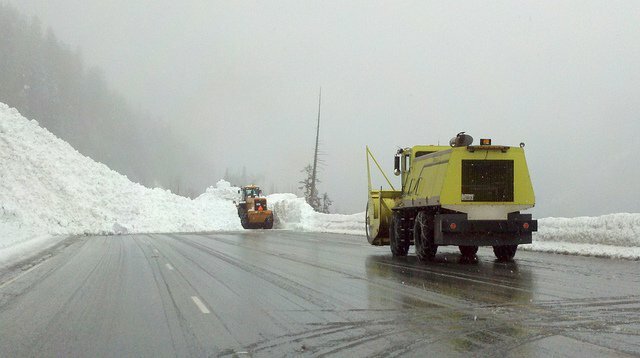
GeekWire tipped me off to the Dow Jones “Misery Index,” which ranks Seattle as the third most miserable city in the country. But it’s worth noting that Portland is number two. Put a bird on that.
The Misery Index tracks just three factors: decline in home value, increase in gas prices, and unemployment. As for the home prices, this headline from the Seattle Bubble gives you some idea: “Case-Shiller: Seattle Home Prices Nearly 30 Percent Off Peak.” Portland, same story. If that’s not enough, economists are predicting a double-dip in housing prices, while even renters are getting hit with increases, thanks to refugees from the housing market deciding to rent instead.
Unemployment remains a chronic problem, despite the media regularly reporting fictitious “drops” in the unemployment rate. The most recent good news for Washington was that unemployment was actually worse than reported in early 2010, not nine but 10.9 percent. Oregon’s unemployment is currently at eleven percent. But a quick glance at Washington and Oregon’s unemployment rate shows the two correspond closely, despite Oregon’s slight lead.
A website that tracks gas prices shows the most expensive gas in Washington at a Chevron up in Blaine: $4.19 per gallon. The cheapest? $3.45, in Ephrata. This too is comparable to Oregon.
Throw in the weather–tell us more about atmospheric rivers, Cliff!–and it becomes tougher to keep singing in the rain. Politicians, even those fighting to save the city from megaprojects, are reviled. Even our tech billionaires can’t put on a happy face.
The thing about this type of misery, though, is that it endures because of the gap between the remembered past and the present. There is pain to losing a job, or losing a home; there is even “pain at the pump” when your grocery budget and your gas budget fight out a zero-sum battle.
But misery derived from measuring home values from the peak of a housing bubble is purely self-inflicted. It’s our “up and to the right” mania that insists on a single standard of growth, rather than a more organic series of developments. So we miss the news that doesn’t correspond to that narrative. We don’t know where to put the fact that driving is declining (along with traffic deaths). We skip mentioning that “net climate warming emissions from the U.S. fell by a whopping 15 percent from 2000 through 2009.”
Good things are happening out there. Just look around.